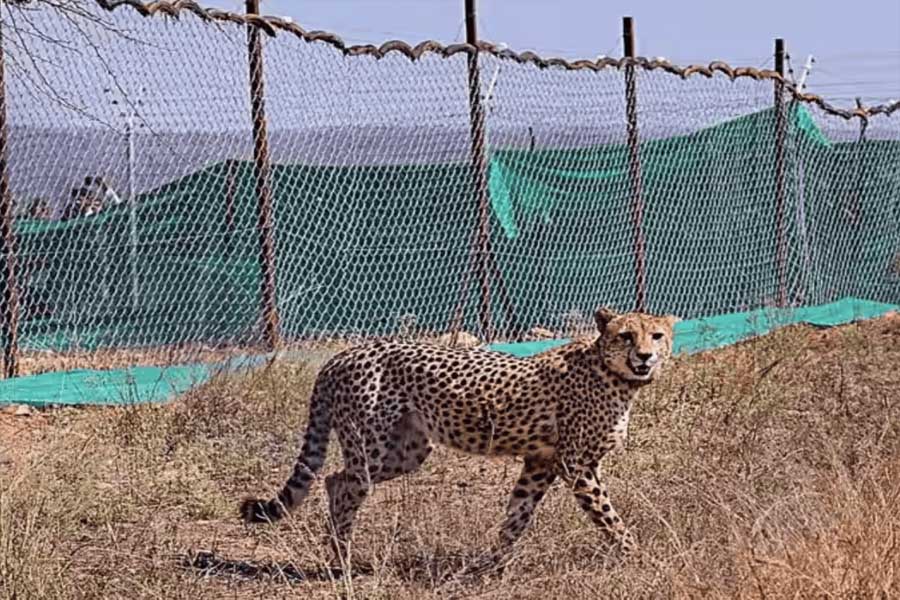MP: No plan for cheetah relocation from KNP, says Union Minister

Gwalior: Union Minister Bhupender Yadav on Saturday said there was no plan to relocate cheetahs from Kuno National Park in Madhya Pradesh’s Sheopur, his statement coming amid the death of nine felines since March this year. ,The Union Minister for Environment, Forest and Climate Change said the government accepted the sensitivity of the ambitious project and wants it to be a complete success.
“There is no plan going on for this (relocation)…Naturally the infection caused by insects due to monsoon has also come to our notice. We have lost two cheetahs due to the infection. We have also shared information with experts from South Africa, Namibia and we are moving forward on its management,” Yadav told reporters.
Asserting that all forest officials and veterinarians were working very hard at KNP, Yadav said this was the first year since the cheetahs were translocated (from Namibia and South Africa in September last year and February this year respectively) and added that continuous work was going on regarding the weather conditions here and its effects.
“I am saying with great confidence that we are seriously engaged in this project. We are fully concerned about each cheetah. The government would like the project to be a complete success. This is a long project in which cheetahs have to come every year. We accept its sensitivity. We will make this project successful,” he asserted. Eight cheetahs were flown into KNP from Namibia and released into special enclosures on September 17 last year, while another 12 were brought in from South Africa in February this year.
Since then, nine cheetahs, including three of the four cubs born here in March, have died, leaving KNP with 15 cheetahs at present, including a cub.
The ninth death took place on August 2. The other deaths took place on July 11, July 14, March 27, April 13, May 9 and March (three cubs). Cheetahs have been brought to KNP as part of an ambitious reintroduction project after the species was declared extinct from the country in 1952.
















